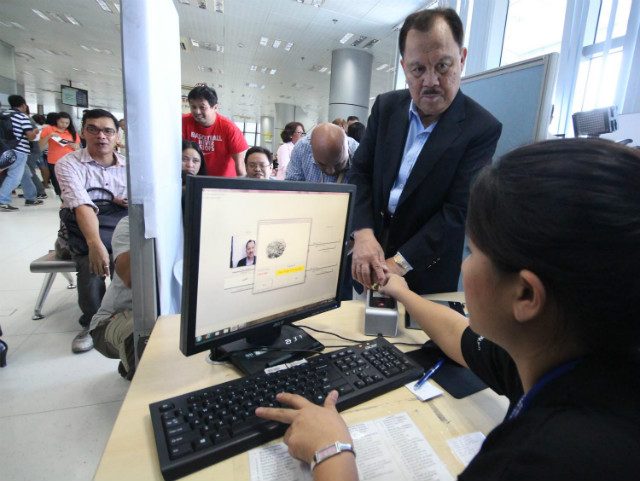SUMMARY
This is AI generated summarization, which may have errors. For context, always refer to the full article.

MANILA, Philippines – Commission on Elections (Comelec) Commissioner Arthur Lim warned Filipinos on Wednesday, April 13, that the Comelec is ready to sue voters who, even through social media posts, falsely claim election fraud.
“Itong netizens na nagpapalabas ng mga false report, ang epekto niyan, ina-undermine nila ang electoral process,” Lim said in a news conference Wednesday.
(These netizens that spread false reports, the effect of that is they undermine the electoral process.)
Asked who will determine if a claim is false, Lim answered, “The court, ultimately, but initially it will be Comelec that has the power to conduct preliminary investigations.”
Lim, the commissioner in charge of overseas voting, made this statement in the context of recent social media posts that allege election fraud overseas.
Overseas absentee voting began on Saturday, April 9.
One of the false social media posts is an edited photo of a ballot in Singapore. The photo shows a ballot with yellow highlights over the names of administration standard-bearer Manuel Roxas II and his running mate, Leni Robredo.
The poll body said the highlighted ballot is fake. Comelec Spokesman James Jimenez said this shows “a deliberate attempt to mislead.”
Jimenez on Tuesday, April 12, presented other examples of social media posts that falsely claim election fraud.
Violators face imprisonment
Lim on Wednesday said the Comelec is now tracing the sources of these social media posts – in an online landscape where many users also have false identities.
He said the Comelec law department “will conduct an investigation, and if there is probable cause” to charge the person, “the law department will recommend to the en banc the filing of criminal cases, and we will act accordingly.”
Lim’s statement is based on the Omnibus Election Code.
Section 261 (z) (11) of the Omnibus Election Code says an election offense is committed by “any person who, for the purpose of disrupting or obstructing the election process or causing confusion among the voters, propagates false and alarming reports or information or transmits or circulates false orders, directives, or messages regarding any matter relating to the printing of official ballots, the postponement of the election, the transfer of polling place, or the general conduct of the election.”
The Omnibus Election Code says any person found guilty of an election offense “shall be punished with imprisonment of not less than one year but not more than six years, and shall not be subject to probation.”
The Comelec is implementing this rule in a tight race to elect the successor of President Benigno Aquino III. It is also the Philippines’ 3rd automated elections using the vote-counting machines of Smartmatic, a company blasted by critics for its supposedly vulnerable machines. (READ: The Imagined President) – Rappler.com
Add a comment
How does this make you feel?
There are no comments yet. Add your comment to start the conversation.